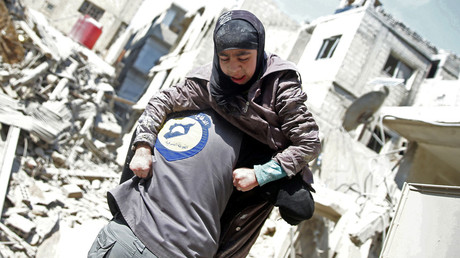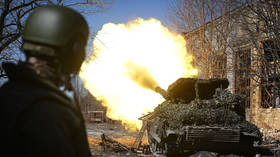‘Information war technique’: Russia’s UN envoy slams ‘mass psychosis’ over Syria’s Eastern Ghouta
Russia’s envoy to the UN has accused mainstream media of leading a “campaign of disinformation,” spearheaded by the so-called White Helmets group, that only complicates the situation in Syria’s militant-controlled Eastern Ghouta.
At an emergency meeting of the UN Security Council in New York, Russia rejected a proposed resolution for a 30-day ceasefire in Syria (submitted by Sweden and Kuwait) as “utopian,” while Vassily Nebenzia said that the “propaganda-driven” approach to the coverage of the conflict was making a peaceful resolution even harder to reach.
The Russian diplomat said that “it is high time” to talk about Eastern Ghouta, a rebel-controlled suburb of Damascus which, according to leading Western media outlets, has become a site for a government-led massacre in the past weeks, with frequent claims that civilians are being deliberately targeted there.
“The mass psychosis in global media outlets acting in coordination, disseminating the same rumors in recent days, in no way does anything to help improve understanding of this situation,” said Nebenzia.
“The impression from media reports is that Eastern Ghouta is composed exclusively of hospitals, and that the government is spending all its time fighting against them. This is a well-known technique in an information war. What we do know for a fact is that militants place their strongholds inside hospitals and schools. For some reason that inconvenient truth is not widely advertised.”
Nebenzia said that “several thousand staunch militants” with links to Al-Nusra terrorist group and other radical Islamist militias, remained in the district, and noted their frequent attacks on other parts of Damascus, which, the envoy noted, did not merit the same attention from international officials and journalists.
Nebenzia particularly singled out the controversial White Helmets group as a “primary source” of false and exaggerated stories coming from Eastern Ghouta, and noted that the organization “enjoys generous outside funding, and cooperates closely with terrorist groups.”




